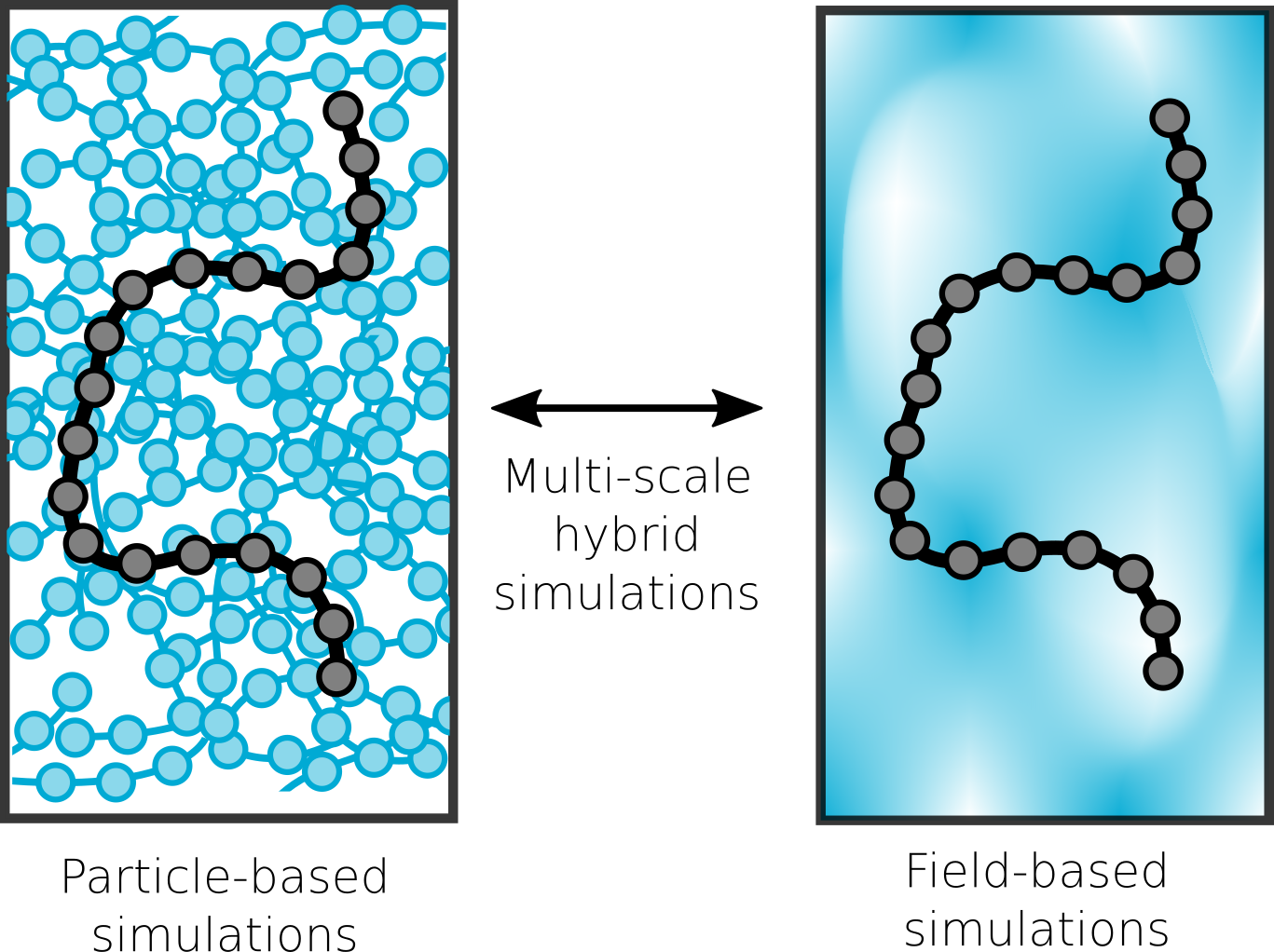
Joshua Lequieu, PhD, assistant professor of chemical and biological, has been awarded a
Faculty Early Career Development (CAREER) grant from the National Science
Foundation (NSF) in support of his project "Chemically specific polymer
models with field-theoretic simulations."
Polymers are chain-like molecules that make up many common materials around
us, including plastics, rubber, cellulose, proteins, and more. Lequieu is
developing a new computational approach to simulate how changes at the
molecular level influence the overall structure and properties of polymer
materials.
"Polymer materials have really complex structures across multiple length
scales - from individual atoms all the way up to larger, but still
microscopic structures," explained Lequieu. "This complexity makes it hard
to predict how small chemical tweaks will alter the final materials."
To tackle this problem, Lequieu is creating a new multi-scale simulation
method that integrates two computational modeling techniques into one
unified framework. This new framework aims to capture both microscopic
chemistry and larger-scale polymer structures without resorting to
approximations inherent to previous approaches.
"Our early tests show this new technique can speed up simulations massively
without losing detail or accuracy," said Lequieu. "This could enable
simulations of polymers that we simply can't run today."
Over the next five years, Lequieu's
group will focus on expanding this new multi-scale simulation
approach, adding more chemical details, and applying it to study the
behavior of self-assembling bio-inspired polymers. The ultimate goal is to
gain new insights into how subtle chemistry changes can guide the assembly
of microscopic polymer structures.
Importantly, Lequieu's grant has a strong educational component supporting
the NSF's core mission of integrating research with science education. This
includes plans for a "Girls Who Code" club to provide coding experience to
middle school girls, an undergraduate research program through Drexel's
cooperative education initiative, and new online lectures and assignments
to train graduate students in computational modeling techniques.
“Of all aspects of this grant, I’m probably most excited about the
educational components,” Lequieu said. “It’s always so refreshing to
interact with students and see what they find exciting and interesting.”